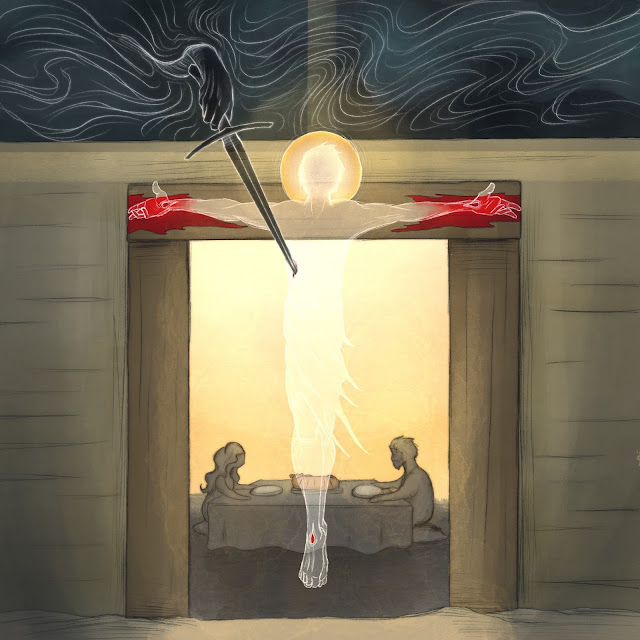Anamnesis
Pastor’s Epistle—April,
A.D. 2019 C
In Remembrance of
Me
Here’s a fun word: Anamnesis.
Anamnesis means remembrance, but not in the sense of
recalling things that happened long ago to people with whom we might be but distantly
related. Anamnesis is a special kind of remembrance, a ritual and religious
remembrance, which connects us in a very real and mystical way to the original
event.
This is how we celebrate holidays. Think of Christmas: we
love to pull out the old songs, the old stories, our family traditions. We don’t
simply speak of Christ as born 2000 years ago: we sing that “Jesus Christ Is
Born Today.” We don’t mean that Jesus is born over and over again every year,
but that we reconnect every December 25 to that sacred Nativity in Bethlehem of
Judea, so that Christmas is real for each and every generation.
Anamnesis explains the importance of Passover to our
Israelite forebears in the Old Testament. God commands His people, through
Moses, to celebrate a sacred meal every spring. At this meal the story of God
liberating His people from slavery in Egypt and delivering them to the Promised
Land of their ancestors is retold, not simply in words but through the meal
itself: through the foods consumed and the order of the service and the way in
which the questions of the next generation form the foundations of the feast.
Every year at Passover, the people of Israel reconnect to
the original Exodus event. They do so mystically, spiritually, religiously, so
that the story isn’t simply about how God freed our
great-great-great-grandparents long ago and far away in a distant land, but it’s
about how God frees us, here and now, today. God rescues us from slavery. God
delivers us from toil and violence and death. He keeps His promises to us.
Easter is the Christian Passover. Indeed, all of Holy Week
is an exercise in anamnesis. When Jesus held aloft the bread and cup,
pronounced them His Body and the New Covenant in His Blood, and commanded His
followers to “do this in remembrance of Me”—He didn’t mean that we should treat
it like a history lesson. We aren’t simply to remember what He did Once Upon A
Time.
The anamnesis of our Lord’s Passover from death to life makes
the event real for us, here and now, today. We are there at Palm Sunday, Maundy
Thursday, Good Friday, and the Easter Vigil. We are there for His Passion,
Crucifixion, death and Resurrection. We don’t just remember the Lord as the
Passover Lamb back then: we proclaim Him as our Passover Lamb, freeing us from
sin and death, dying and rising for every person of every age gathered in His
Name.
Holy Week is Sunday for the year. We come together for the
entire celebration, and especially for the great Three Days of Thursday,
Friday, and Saturday night. In this we don’t just reenact our Lord’s final
days. We don’t just retell the story. We are there for it all! We are part of
it all, for it is truly our Story, the Greatest Story Ever Told.
Come to Holy Week, from Palm Sunday through the great
Resurrection. Join in the length and breadth of the drama, the remembrance, the
reality of the Risen Christ. Christ has died; Christ is Risen; Christ will come
again. Let us sit with Him at the Table, weep with Him in the Garden, stand in
horror by His Cross, and rise with Him from the Tomb.
Let us do this all in remembrance of Him.
In the Name of the Father and of the +Son and of the Holy
Spirit. Amen.

Comments
Post a Comment